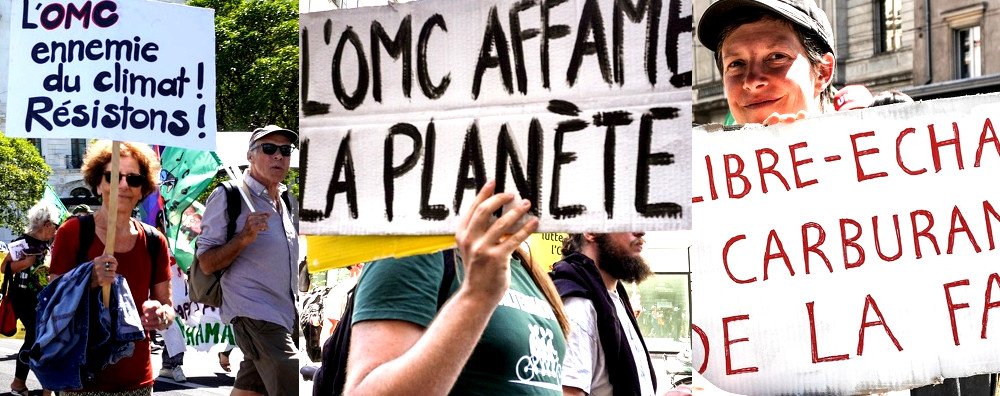Brussels: ECVC to join the actions against EU-Mercosur, EU-Mexico and EU-Chile trade (and investment) agreements

On the 17th and 18th of July, representatives of governments from Latin America, the Caribbean and the EU get together in Brussels for the The European Union – The Community of Latin American and Caribbean States (EU-CELAC) Summit . The European Commission and several EU Member States want to seize the moment to make progress on the ratification of the EU-Mercosur, EU-Mexico and EU-Chile trade (and investment) agreements. These agreements are part of an out-dated model of trade that has failed people and the planet. They serve corporate interests at the expense of planetary boundaries, decent working conditions, jobs and animal welfare, and drive untenable social inequalities. Instead of more competition, more cooperation between the two regions is needed to confront the major challenges of our times: climate crisis, massive biodiversity loss, growing poverty, unemployment and hunger and escalating geopolitical conflicts.
On Monday, 17th and Tuesday 18th of July civil society actors and social movements are calling for actions around the EU-CELAC summit in Brussels.

In March this year, the European Coordination Via Campesina (ECVC) and its allies had warned that the EU-Mercosur agreement, which purports to protect the environment, climate and human rights, fails to do so. They warned that the annex exposes a dangerous gap between the European Union’s climate goals and commitments to protect human rights, and what it actually endorses behind closed doors. The ECVC and allies’ joint tool found that the EU-Mercosur agreement is just another half-hearted, cynical attempt to push through a fundamentally destructive deal that at its core seeks to boost the export of commodities that drive deforestation, greenhouse gas emissions, human rights abuses and push the Amazon and other key biomes further past the point of no return.
A delegation of ECVC farmer representatives will speak at the Trade Justice events in Brussels. La Via Campesina has consistently called on all countries to move away from the free trade paradigm and instead build a new framework for international trade based on food sovereignty, with human rights at its core, in line with the rights of food producers as recognised in the UN Declaration on the Rights of Peasants and Other People Working in Rural Areas (UNDROP).
This would allow for genuine agricultural development that prioritises local food production and agroecology, rather than prioritising profit and the expansion of corporate power over food and agriculture.
